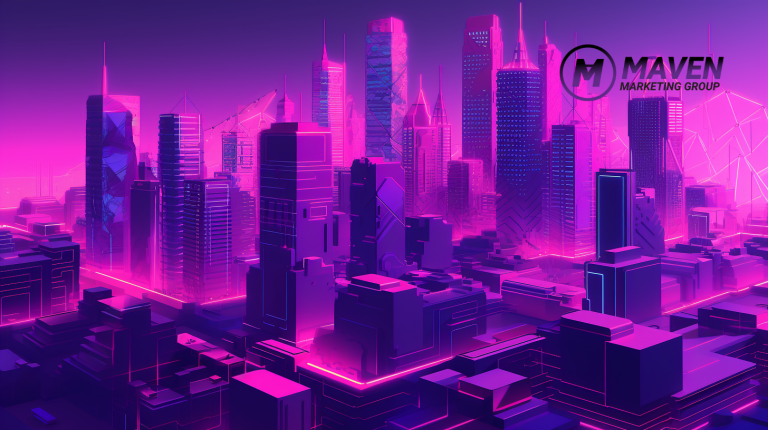
In today’s digital landscape, having an accessible and usable website is crucial for businesses to establish an effective online presence.
With the rise of social media and the increasing importance of content management, businesses must prioritize accessibility and usability to attract and retain customers.
Businesses need to ensure that their platforms are user-friendly and encourage active interaction from users.
A professional web designer and developer can help you achieve a responsive website or a single-page website using HTML.
By hiring a web designer, you ensure that your website is not only aesthetically pleasing but also optimized for search engines, increasing its visibility to potential customers.
With their expertise in website design and development, they can create a responsive website that adapts seamlessly to various devices and screen sizes.
Having a responsive website is essential in web development.
It not only improves the user experience but also enhances your brand credibility.
With an eye-catching user interface design and a well-structured page website, you can ensure that visitors have a positive experience.
A well-designed website can attract more visitors and potentially convert them into loyal customers.
So if you’re looking to enhance your online presence and reach your target audience effectively, consider hiring a skilled website designer.
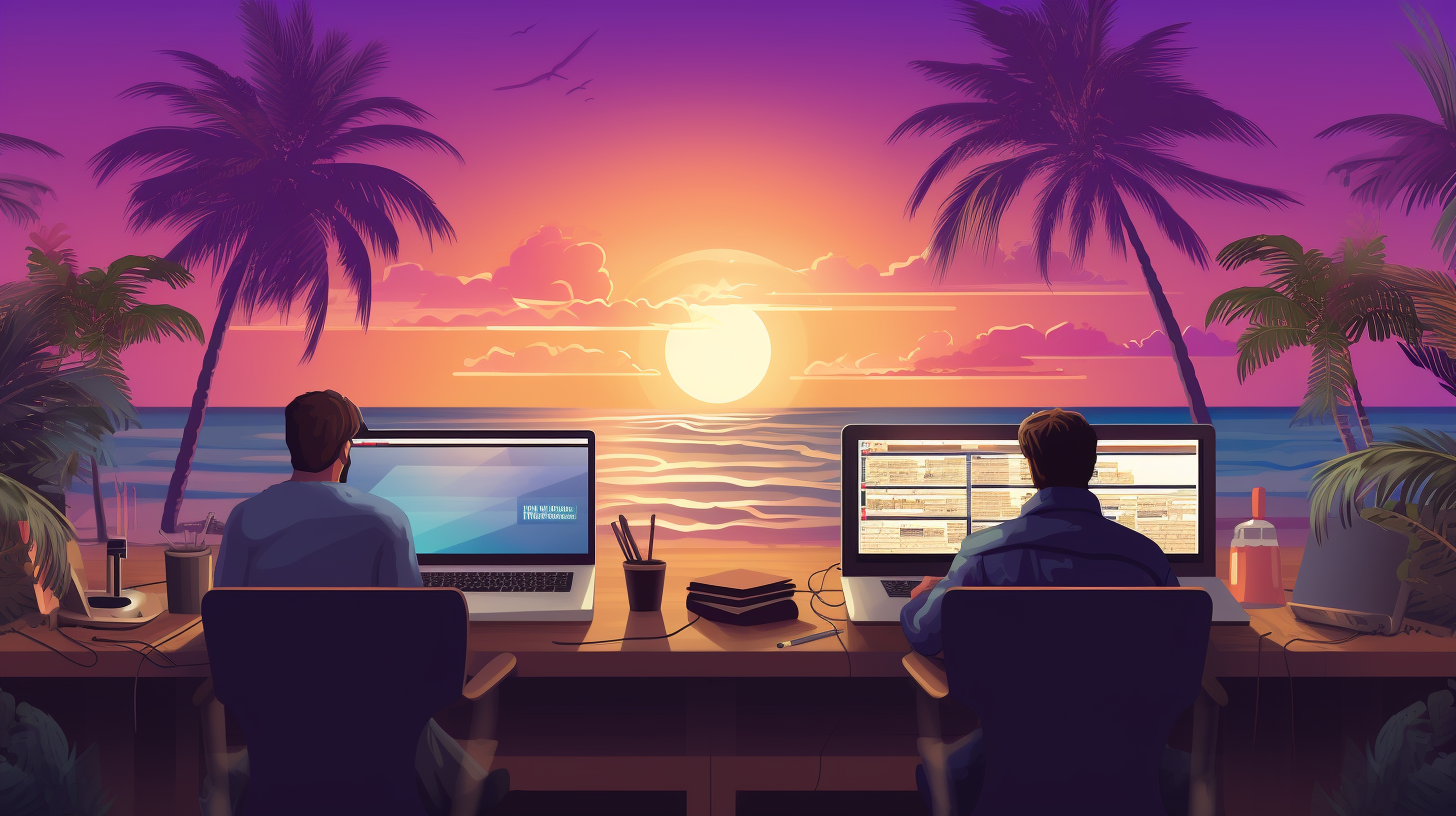
Yes, you can certainly hire someone to design your website.
Employing a professional web designer or design agency can provide you with a high-quality, customized website tailored to your business needs and aesthetic preferences.
Whether you’re looking for a simple informational site or a complex e-commerce platform, professional designers have the expertise to bring your vision to life.
Hiring a professional web designer can provide numerous benefits, from custom designs to technical expertise.
By understanding your needs and budget, you can make an informed decision about whether hiring someone to design your website is the right move for you.
When selecting a web designer, consider their portfolio, client reviews, and the range of services they offer. A consultation can also provide insights into their expertise and work style.
Prices can vary widely depending on the scope of the project, with basic sites starting at a few hundred dollars and complex projects running into the thousands or more.
Hiring a designer is often worth the investment for businesses seeking a professional and unique online presence that effectively engages their target audience.
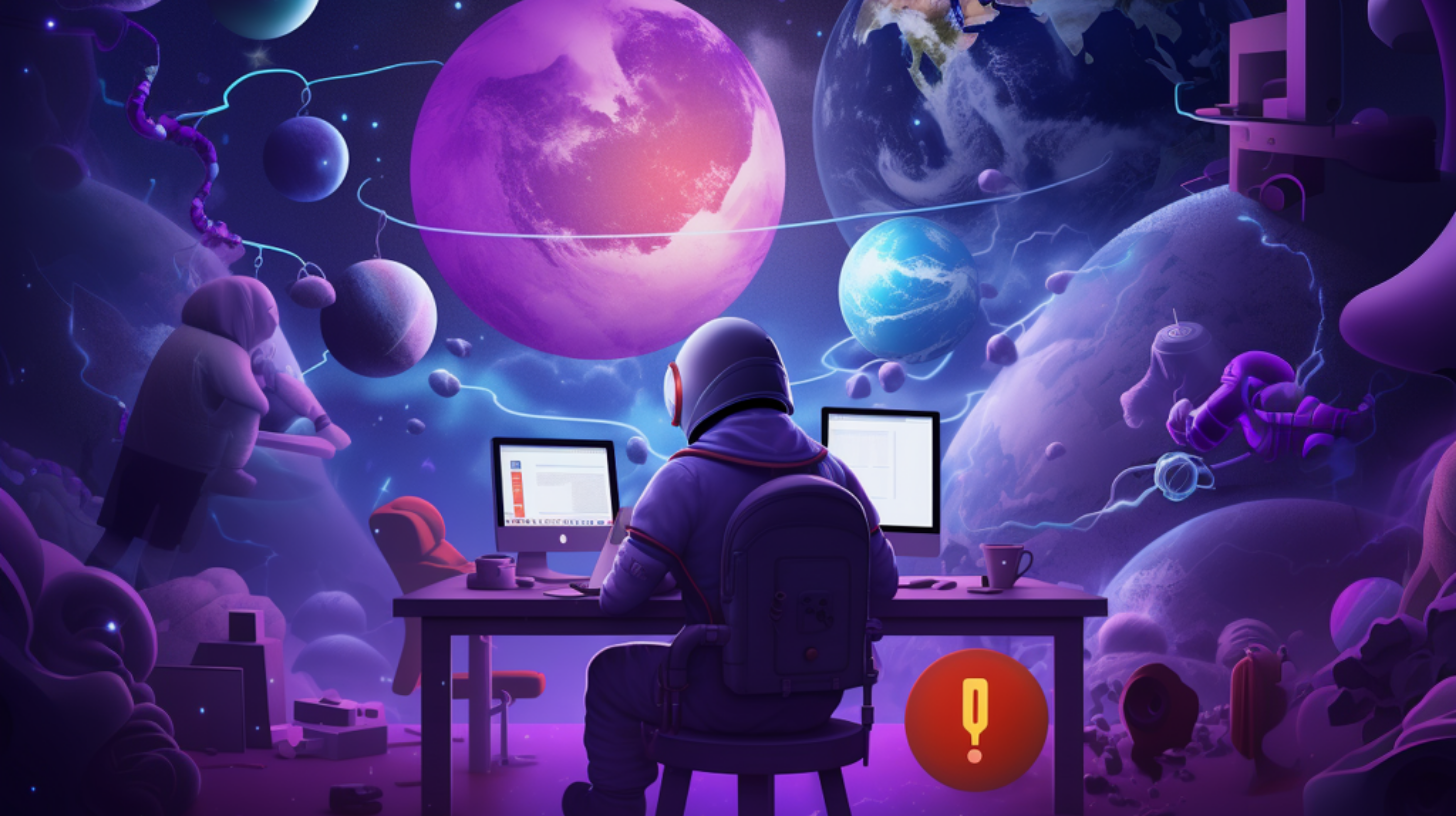
Hiring a professional web designer can offer several advantages.
These experts possess the necessary skills and knowledge to design unique and customized websites that align with your brand identity.
Our team ensures that the content, deliverables, and devices are tailored to meet the specific needs of each customer.
Let’s explore some of the key benefits of outsourcing web design to professionals.
Professional web designers have the expertise to create visually appealing websites with customized content and CSS code, delivering high-quality deliverables that meet your specific business needs.
They understand the importance of branding and can incorporate your company’s logo, colors, overall aesthetic, and visual elements into the design.
By leveraging their creativity and technical skills in visual design and CSS, they can develop a website that stands out from competitors and leaves a lasting impression on visitors.
Their deliverables in web design will include visually appealing content that is optimized for user experience.
Web design trends are constantly evolving, with new technologies emerging regularly.
As a web design agency, it is important for us to stay up-to-date with these trends to deliver high-quality content and code to our clients.
Our deliverables reflect the latest design trends and incorporate cutting-edge technologies.
Professional web designers prioritize staying updated with the latest trends in content and code, ensuring that your website remains modern, relevant, and user-friendly.
They are well-versed in responsive design techniques for web development, ensuring that your web page looks great on all devices, including smartphones and tablets.
By utilizing the latest tools and technologies, they can enhance user experience (UX) through the implementation of responsive web design features like smooth navigation, interactive elements, and fast loading times.
User experience is paramount. Professional web designers have a deep understanding of UX principles and how they impact user behavior on a website.
They are experts in creating engaging web pages that users interact with, resulting in a user-friendly experience that keeps visitors on the site longer.
They have expertise in visual design and know how to create intuitive user interfaces and navigation structures that provide easy access to content for visitors.
By optimizing the user journey through strategic placement of buttons, menus, and calls-to-action in responsive web design, they can guide users towards desired actions such as making purchases or submitting contact forms.
As a business owner, you have numerous responsibilities on your plate, including creating and managing content.
Outsourcing web design enables you to prioritize core activities like product development and customer service while entrusting the technical aspects to content experts.
By entrusting your website design to professionals, you can save time and energy that would have otherwise been spent on learning complex coding languages or troubleshooting website issues.
Professional website designers can handle complex coding languages and troubleshoot website issues, allowing you to focus on creating quality content for your site.
This allows you to allocate your resources more effectively and concentrate on growing your business.
A professionally designed website exudes credibility and professionalism.
Visitors are more likely to trust well-designed web pages, leading to increased conversions and sales.
Professional web designers know how to create a visually appealing layout that instills confidence in users.
They also optimize the website for search engines, ensuring that it ranks higher in search results and attracts organic traffic.
Web design is not a one-time task; it requires regular updates and maintenance to ensure optimal performance on the site.
Professional web designers offer ongoing support services, including software updates, bug fixes, security enhancements, and content management system (CMS) maintenance.
By having a dedicated team of experts handle these tasks, you can rest assured that your website remains secure, up-to-date, and free from technical glitches.

There are certain elements, or key factors, that you should consider to ensure you find the right fit for your needs.
Let’s take a closer look at these important elements or considerations:
One of the first things you should look for when hiring a web designer is their experience in designing websites within your industry or niche.
This is important because different industries may have specific requirements and design trends that need to be taken into account.
By choosing a designer who has worked on similar projects, you can ensure they understand the unique challenges and opportunities associated with your industry.
Checking a web designer’s portfolio is crucial in assessing the quality of their previous work and determining if it aligns with your vision.
A portfolio showcases the designer’s skills, creativity, and ability to deliver high-quality designs.
Take the time to review their past projects and see if they match your aesthetic preferences and overall brand image.
Look for diversity in their portfolio as well, as this demonstrates versatility and adaptability.
In today’s digital landscape, having an online presence is not enough; you also need your website to be visible to potential customers.
That’s where search engine optimization (SEO) comes into play.
When hiring a web designer, make sure they know SEO best practices so that they can optimize your website for search engines.
This includes optimizing page titles, meta descriptions, headings, images, and URLs.
Effective communication is essential throughout the web design process.
You’ll want a web designer who can understand your requirements, provide regular updates on progress, and address any concerns or questions promptly.
Good communication ensures that both parties are on the same page regarding expectations and timelines.
In addition to the key factors mentioned above, certain elements can greatly impact the user experience of your website.
These include screen size and load times.
By considering speed optimization when hiring a web designer, you can guarantee that your website delivers an optimal user experience on various devices and loads quickly for visitors.
Freelance platforms like Upwork or Fiverr offer access to a wide pool of talented web designers.
These platforms provide a convenient way to connect with designers from around the world, allowing you to choose from a diverse range of styles and expertise.
Pros:
Cons:
Design agencies provide comprehensive services but may come at a higher cost compared to freelancers.
These agencies often have teams of experienced designers who can handle various aspects of web design, including user interface (UI), user experience (UX), and graphic design.
Pros:
Cons:
Referrals from trusted sources can lead you to reliable web designers who have proven track records.
Seeking recommendations from colleagues, friends, or industry professionals who have previously worked with web designers can provide valuable insights and help you find the right fit for your project.
Pros:
Cons:
Online communities or forums dedicated to web design can help find skilled professionals.
These platforms allow you to interact directly with designers, ask questions, seek advice, and even showcase your project requirements.
Pros:
Cons:

Before diving into the process of hiring a website designer, it’s crucial to clearly define your project requirements and expectations.
This will help you find the right fit for your business and avoid any misunderstandings down the road.
Take some time to assess what you need from your website.
Consider factors such as design aesthetics, functionality, user experience, and any specific features or integrations required.
By having a clear vision in mind, you can effectively communicate your needs to potential web designers.
To ensure you’re making an informed decision, conduct thorough research on potential web designers.
Check their reviews and testimonials from previous clients to gauge their reputation and quality of work.
Look for examples of websites they have designed to see if their style aligns with your vision.
Once you’ve narrowed down your options, request a detailed proposal from each web designer.
This should include the scope of work they will cover, the timeline for completion, and a breakdown of the costs involved.
Review these proposals carefully to compare different offerings before making a final decision.
To protect both parties’ interests throughout the project, consider signing a contract or agreement with the chosen web designer.
This document should outline important details such as project milestones, payment terms, intellectual property rights, and dispute resolution procedures.
Having this legal framework in place can provide peace of mind for both parties involved.
By following these essential steps when hiring a website designer, you can increase the chances of finding someone who meets your expectations while avoiding potential pitfalls along the way.
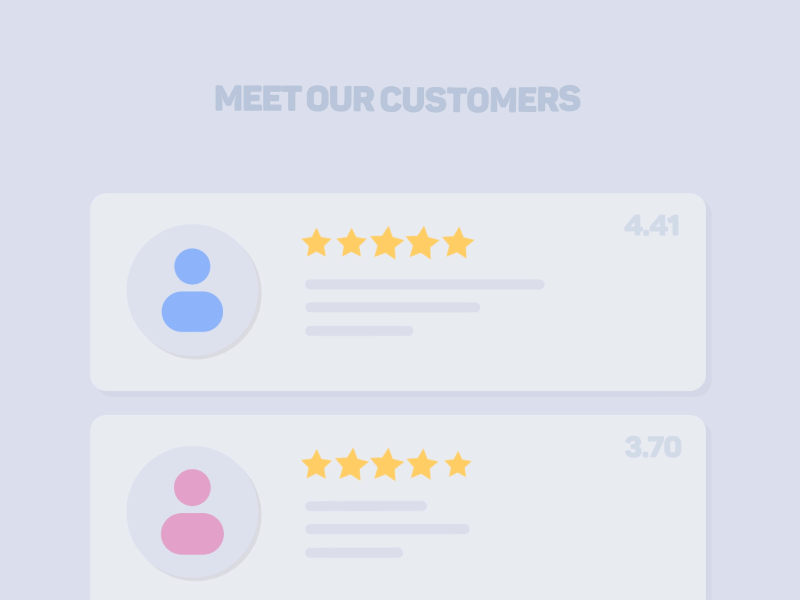
To ensure that you are making the right decision when hiring a website designer, it is crucial to gather feedback from previous customers.
This step allows you to get insights into the web designer’s professionalism, reliability, and overall satisfaction of their clients.
By contacting previous clients and asking about their experience working with the designer, you can make an informed decision.
Reach out to the web designer and ask for a list of their previous clients.
Once you have this list, take the time to contact these individuals directly.
Speaking directly with previous clients will give you firsthand information about their experience and provide valuable insights into what it’s like to work with this particular web designer.
When speaking with previous clients, be sure to ask them about the quality of communication they experienced during the project.
Did the web designer respond promptly to emails or phone calls? Were they clear in explaining any changes or updates? Effective communication is essential when working on a website or web design project.
Inquire about whether the web designer adhered to agreed-upon deadlines.
Did they deliver their work on time? Timeliness is crucial.
Ask previous clients if they were satisfied with the final product delivered by the web designer.
Did it meet their expectations? Was it visually appealing and user-friendly? Understanding how satisfied previous clients were with the final product will give you an idea of what you can expect from this particular web designer.
Inquire if any issues arose during or after completing the project and how they were resolved.
It’s important to understand how well a web designer handles challenges that may arise throughout a project.
Did they address problems promptly and effectively? How did they handle any necessary revisions or changes requested by the client?
By gathering feedback on how the web designer handled any issues, you can assess their problem-solving skills and ability to work collaboratively with clients.
Feedback from previous customers can provide valuable insights into a web designer’s professionalism and reliability.
By contacting previous clients, you gain a deeper understanding of their experience working together, the quality of communication, adherence to deadlines, overall satisfaction with the final product, and how they addressed any issues that arose during or after project completion.
When considering previous clients, keep in mind any comments or reviews they may have shared.
Their experiences will help you make an informed decision when hiring a website designer for your project.

To hire a website designer, it’s crucial to conduct thorough research using online platforms like LinkedIn or professional directories.
These platforms can help you find reputable web designers with the necessary skills and expertise in relevant technologies/frameworks.
Once you have compiled a list of potential candidates, it’s time to evaluate them based on their portfolio, skills, and client testimonials/reviews.
Take a close look at their previous work to determine if their design style aligns with your brand image and vision.
Use online platforms such as LinkedIn or professional directories to search for web designers who specialize in your industry or niche.
Look for those who have experience working on projects similar to yours.
This will ensure that they understand the specific requirements and challenges associated with your business.
When evaluating candidates, pay close attention to their portfolios.
Look for websites they have designed that are visually appealing, user-friendly, functional, and eye-catching.
Consider whether their design aesthetic matches your brand image.
Consider their expertise in relevant technologies/frameworks.
For example, if you require an e-commerce website, ensure that the designer has experience working with popular e-commerce platforms like Shopify or WooCommerce.
Client testimonials and reviews provide valuable insights into a web designer’s professionalism and ability to deliver results for your business website.
Look for positive feedback from previous clients regarding communication skills, meeting deadlines, and overall satisfaction with the final product.
Once you have narrowed down your list of potential candidates based on portfolios and testimonials/reviews, it’s time to schedule interviews or consultations.
During these interactions, assess each candidate’s understanding of your project goals and compatibility with your vision.
Ask questions about their design process, how they handle revisions or changes during the development phase, and what kind of ongoing support/maintenance they offer after the website is launched.
This will give you a better understanding of their approach and whether it aligns with your expectations.
When making the final decision, consider factors such as pricing structure and post-launch services.
Ensure that the web designer’s pricing fits within your budget and that there are no hidden costs or unexpected expenses.
Inquire about their availability for ongoing support and maintenance after the website is launched.
Having a reliable point of contact for any future updates or technical issues is essential to ensure the long-term success of your website.
To summarize, finding the best web designer involves conducting thorough research using online platforms, evaluating candidates based on their portfolio and expertise, scheduling interviews or consultations to assess compatibility, and considering factors such as pricing structure and post-launch services.
By following these steps, you’ll be able to select a great example of an ideal candidate who can bring your vision to life.

To ensure a successful partnership with your web designer, effective communication and collaboration are key.
By clearly expressing your expectations, project goals, and timeline from the start, you can establish a shared understanding.
Regular feedback throughout the design process will help guide the web designer’s work in alignment with your vision.
Open lines of communication through various channels such as email, phone calls, or project management tools will facilitate efficient collaboration.
Establishing a process for reviewing and approving design drafts or prototypes will also help avoid misunderstandings and delays.
When hiring a website designer, it’s crucial to communicate your expectations right from the beginning.
Be clear about what you hope to achieve with your website and outline specific project goals.
This will provide the web designer with a clear direction on how to proceed.
Discussing timelines is essential to manage expectations and ensure that both parties are on the same page regarding project deadlines.
During the design phase, it’s important to provide regular feedback to guide the web designer’s work.
This allows them to make adjustments based on your preferences and ensures that they are moving in the right direction.
Providing constructive criticism respectfully helps foster a collaborative environment where both parties can work together toward achieving an optimal outcome.
Open lines of communication are vital for effective collaboration with your web designer.
Whether it’s through email, phone calls, or project management tools like Trello or Asana, ensure that you have a reliable means of communication.
Promptly respond to any queries or requests for clarification to keep the workflow smooth and efficient.
To avoid misunderstandings and delays, establish a clear process for reviewing and approving design drafts or prototypes.
This ensures that both parties are aligned before moving forward with the development phase.
Communicate your expectations for each review stage, including deadlines for providing feedback and making decisions.
By following these guidelines, you can foster effective communication and collaboration with your web designer.
Remember that successful partnerships are built on mutual understanding, regular feedback, open lines of communication, and a well-defined review process.
With these elements in place, you can work together seamlessly toward creating a website that meets your goals and exceeds your expectations.

One of the key considerations is budgeting.
Understanding the costs and investments involved in website design is crucial for making informed decisions that align with your business goals.
Estimating website design costs requires considering several factors.
The complexity of your project plays a significant role in determining the overall cost.
A simple informational website with a few pages will generally be less expensive than a complex e-commerce site with multiple product categories and payment gateways.
Functionality requirements also impact the cost of website design.
If you need advanced features such as user registration, online booking systems, or integration with third-party platforms, these additional functionalities may increase the overall cost.
Customization needs are another factor to consider.
If you have specific branding guidelines or unique design elements that require customization, it may add to the overall cost of the project.
Discussing these requirements with your web designer upfront can help you get an accurate estimate.
Professional web designers typically offer two pricing models: hourly rates or fixed-price packages based on project scope.
Hourly rates vary depending on factors such as experience level and geographic location.
Opting for hourly rates it’s essential to establish clear communication channels and set expectations regarding timelines and deliverables to avoid any surprises regarding billing hours.
On the other hand, Monthly fixed-price packages provide transparency from the beginning by outlining all included services at a predetermined price point.
This option can be beneficial if you have a well-defined project scope and want more predictability in terms of budgeting.
In addition to professional fees, there are other costs associated with website design that you should account for in your budget:
While it’s important to consider the costs involved in website design, it’s equally vital to recognize the value of investing in high-quality web design.
Here are some reasons why:
By investing in high-quality web design that aligns with your business goals and target audience preferences, you set yourself up for long-term success online.
![]()
In conclusion, hiring a professional web designer can provide numerous advantages for your business.
They have the expertise and skills to create a visually appealing and functional website that aligns with your brand image.
When hiring a web designer, it is important to consider key factors such as their portfolio, experience, and communication skills.
By choosing the right platform to hire from and understanding the differences between website builders and professional designers, you can make an informed decision that suits your needs.
Gathering feedback from previous customers can give you valuable insights into a designer’s reliability and work quality.
Once you have found the best web designer for your project, effective communication and collaboration are crucial.
Communicate your requirements, provide detailed feedback, and maintain open lines of communication throughout the creative process.
Budgeting for website design is also essential; understanding costs and investments will help you allocate resources appropriately.
In summary, partnering with a skilled web designer can greatly enhance your online presence and contribute to the success of your business.
By following these steps and considering these factors when hiring a website designer, you are setting yourself up for a successful collaboration that will result in an exceptional website tailored to your brand.
While it is possible to design your website using various tools available online, hiring a professional web designer offers several advantages. Professional graphic designers possess specialized knowledge in creating visually appealing websites that effectively convey your brand message. They have expertise in web development and user experience (UX) design principles which can greatly enhance the functionality of your site.
The time it takes to hire a web designer varies depending on several factors such as the complexity of your project, the availability of designers in your desired platform or location, and how quickly you reach an agreement with the selected candidate. It is recommended to start the hiring process well in advance to allow for adequate time to review portfolios, conduct interviews, and negotiate terms.
Your website design brief should provide a comprehensive overview of your business, its goals, target audience, and any specific requirements you have for the website. Include details about your brand identity such as color schemes, existing logos, and visual elements. Providing examples of websites that you like can also help the designer understand your preferences.
The cost of hiring a web designer can vary widely depending on factors such as their experience level, the complexity of the project, and geographic location. It is important to discuss pricing upfront with potential designers and establish a clear understanding of their rates and payment terms before committing to a contract.
Yes, many web designers provide training or documentation on how to update and manage your website once it has been designed. This allows you to make minor changes or add new content without relying on the designer for every update. However, if you require major redesigns or technical modifications in the future, it may be beneficial to consult with the original designer for optimal results.

Maven Marketing Group
We hope this article helps you out! If you want more advice for expanding your reach, getting leads, & growing your business — let us know in the comment section below!
Or if you’d like help implementing any of these tactics into your business – drop us a line! We’d love if you left a comment/question for us to answer below!
At Maven Marketing Group, we have evolved into a comprehensive digital marketing agency specializing in top-tier web development, web design, web management, SEO, and PPC services.
Could we assist you with your project?
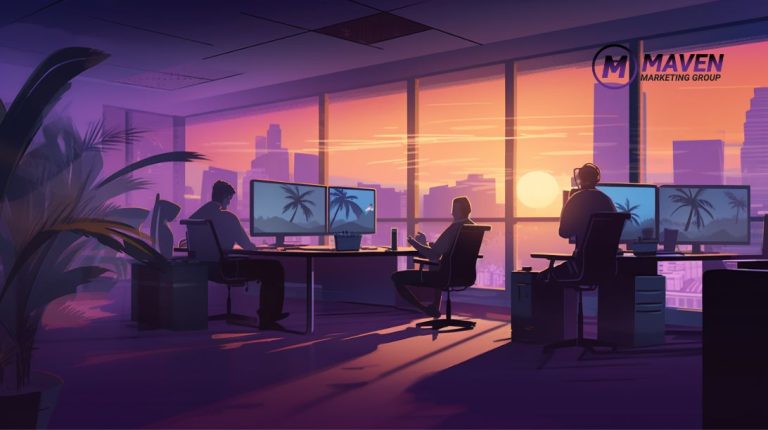
Digital Marketing Pros – Dedicated to creating stunning websites and delivering top-notch online solutions.
Our Mission: To empower you to combat the challenges of the digital landscape, ensuring your online presence stands out.
Maven provides the best web design, development, and management services to achieve real results for your business.
Whether it’s through our expertly crafted websites or by enhancing your business online, we always deliver.
No one else offers this level of expertise!
At Maven Marketing Group, we have evolved into a comprehensive digital marketing agency specializing in top-tier web development, web design, web management, SEO, and PPC services.
Could we assist you with your project?